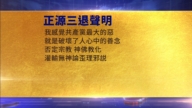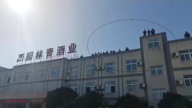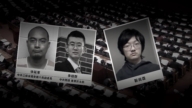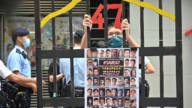【新唐人2012年3月23日讯】薄熙来被免职引发的京城政变传言越演越烈,由于当局封杀言论,加强网控,在真假难辩,真相难明的情况下,网友纷纷用各种令人啼笑皆非的暗语,解说中南海混战,影射周永康政变未成,反遭胡温清除的小道消息。
19号夜间大陆微博传出“西红柿被双规”、“紫禁城枪声”、“机场封锁”、“长安街戒严”等讯息,20号凌晨更有人传说,一支部队开进北京,胡温和江系已经相互抓捕对方人马,中南海内部混乱,顿时一片政治乌云笼罩北京。
当晚,网络空间几乎通宵达旦等待内情曝光,网友在等待中顶帖、跟帖时也发现,不断有删帖、封帖现象出现,“长安街”、“枪声”等也变成了敏感词。网民开始变通发帖方式,改用暗语,如:“第十八届拔河预选赛,由胡萝卜小丸子带队,天线宝宝,小霸王学习机,木子李为队员的龙队大获全胜。对手康师傅牛腩面由于临阵缺少西红柿,惨重失败。”
然而传言并没有到此停止,20号晚一条“天线宝宝大战康师傅”帖子红遍网络,另有帖子说,参加“大战”的还有“胡一刀”、“江小鱼”等人,而康师傅一派因战前损失大将“西红柿”最终败北,导致康师傅下架。
21号,网络再传用暗语详述中共内斗故事的完整版资料。北京一位长期研究官场的人士分析,这份资料的可信度比较高。
这些暗语的大意是,周永康因不满胡温双规薄熙来,发生内斗,绝大部分太子党倒戈向胡温及习近平,江系和周永康“挺薄派”在权斗中惨败。
网络作家荆楚指出,薄熙来被免职,当局封锁事件真相,刺激了民众的探究欲望,本能的从各种管道中搜索小道消息,但却遭当局过滤,所以他们就用暗语编段子恶搞高层。
荆楚:“这个网络过滤,敏感词设置,就像被人掐了脖子,很多话都不能说,这是中国特色,通常搞这一个细化中国人思想的文化方式。 网民就用这种方式躲避过滤,你像胡锦涛,有的网友就把他说成‘胡紧套’,这样就可躲过网络过滤了。”
网络作家昝爱宗指出,网民用暗语躲避当局网络过滤,在大陆已经持续了十几年,当局一直设置新的敏感词,网友也一直在发明新的替代词,像火星文、竖排版,都是网民为了防范过滤词而研发的。
昝爱宗:“这个现象就说明中国还没真正的开放,你开放不仅仅是经济上的开放,还要有政治上的开放,言论自由这方面的开放,你有了开放才能有对这个国家有建设性的语言,有正常的评价,有正常的批评,这个社会才正常。”
昝爱宗还指出,中国离现代化国家管理的道路还很遥远,很多事情只能靠猜,也是导致网民发明替代词,影射讽刺高层的原因之一。
采访编辑/李韵 后制/孙宁
———————
Chinese Netizens Use Code Words to Discuss CCP Insider Struggles
The rumor mill is that the removal of Bo Xilai from his post
has led to a coup in Beijing.
Since the authority tightened control over freedom of speech,
especially on the Internet, it has become very hard to confirm the truth.
Under such conditions, Chinese netizens have implemented
various code words to talk about the CCP entanglement.
One unconfirmed story from some sources goes that
Zhou Yongkang, who was deprived of power by Hu and Wen, (President and Premier) failed in the coup.
Starting on the evening of March 19th, messages with the
phrases ‘“Tomato” was detained for interrogation,”
“Forbidden City gunshots,” “Airports are closed,” and
“Chang’an Avenue martial law” appeared on Chinese microblog websites.
On the morning of March 20th, it was even said that
troops had entered Beijing.
Rumors point to the Hu and Wen (the current President
and his Premier) faction, along with the Jiang (former
President), faction, arresting each other’s group members,
plus turbulence at Zhongnanhai (CCP central headquarters).
Sudden political changes caused a gathering of clouds
over Beijing.
On the evening of the same day, many netizens stayed online
through the night waiting for updates about the situation.
They found many posts to be deleted during that time and
words such as “Chang’An Avenue” and “gunshots” became censored.
Reacting to such changes, netizens began to use code words
and phrases in their posts, such as
“in the 18th tugging war contest” (18th National Congress),
the “carrot ball” (Hu Jintao) led his team members “antenna baby” (Wen Jiabao),
“learning machine” (Xi Jinping), and “wood seed” (Li Keqiang)
to win against their rivals “Master Kong beef noodle” (Zhou Yongkang),
who severely lost the game without support
from “Tomato” (Bo Xilai).
The rumors didn’t stop there.
Another online post titled “’Antenna baby fights against
Master Kang” became popular starting on the night of Mar 20th.
Another post told a similar story of “Hu Yidao” (Hu Jintao)
and “Jiang Xiaoyu” (Jiang Zemin) joining the fight, and
due to the loss of their key member “Tomato” (Bo Xilai),
the “Master Kang noodles” (Zhou Yongkang’s group) were finally defeated and driven off of the shelf (lost power).
On March 21st, a more complete online report regarding
the CCP insider struggles was written in code words.
According to a senior political analyst in Beijing,
some contents in this report are quite reliable.
After translation, this “code word story” said that
Zhou Yongkang was angry about Hu and Wen’s detainment
and interrogation of Bo Xilai, so consequently started
an internal conflict.
With most princelings choosing to support Hu-Wen and
Xi Jinping, the Zhou-Jiang faction was dealt a crushing defeat.
Internet writer Jing Chu pointed out that the truth of Bo Xilai’s
dismissal being blocked by the authority has aroused the Chinese people’s inquiring minds.
They attempt to collect information by all means,
nevertheless suffer intensified censorship.
Under such suppression, they began to create code words
to jokingly refer to the CCP leaders.
(Jing Chu): ”The censorship of “sensitive words” on the web
makes you feel like (you’re) being stretched from the neck and unable to say a lot of things.
This characteristic of the CCP aims at regulating the opinions
of Chinese people in a cultural form.
In response, the Chinese netizens create code words
to bypass the filter.
For example, some netizens refer to Hu Jintao as “Hu tightening
cover,” which has a similar pronunciation in Chinese so it may survive the Internet censorship.
Internet writer Zan Aizong remarked that it has been more
than one decade since Chinese netizens began to use code words against censorship.
The authority continuously adds new words to the filter list,
and netizens are continuously creating new code words as well.
They also invented mars letters and use column writing
to get the same results.
(Zan Aizong): ”Such a phenomenon proves that China
is not truly open.
The openness is not for economy only, but also
in politics and speech.
Only with such freedom can constructive suggestions
be accepted, can the critics’ remarks be presented, and can the whole society function normally.”
Zan Aizong further remarked that currently China is still far
from a modernized management.
With the truth being blocked, speculation happens often,
which is also one driving force of using sarcastic code words to communicate about the CCP leaders.
On the other hand, such alternative words are destroying
the Chinese language.
Zan believes that once the censorship is upset, Chinese people
will finally recover their tradition of language and culture.































